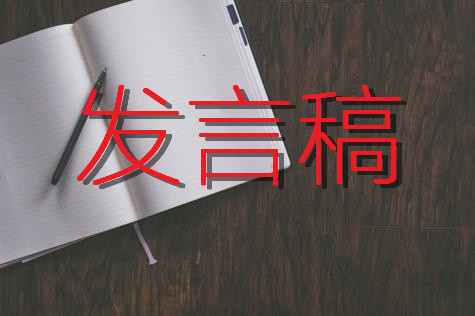英语连接代词和不定代词重点语法(完整)
时间:2023-02-11 来源:博通范文网 本文已影响 人 
下面是小编为大家整理的英语连接代词和不定代词重点语法(完整),供大家参考。

英语连接代词和不定代词的重点语法1
1. 意义与用法
首先要弄清什么叫连接代词。所谓连接代词,指的就是在主从复合句中用以引导主语从句、宾语从句或表语从句,同时还在从句中充当一定句子成分的一类代词。比较常见的连接代词有who, whom, what, which, whose等,它们形式上与疑问代词一样,但作用不同——当它们用于引出特殊疑问句时,它们是疑问代词;当它们用于引导主语从句、宾语从句或表语从句时,它们就是连接代词。如:
What do you want? 你想要什么?
I don’t know what you what. 我不知道你想要什么。
第一句是特殊疑问句,句首的what为疑问代词;第二为主从复合句,其中的what引导一个宾语从句,故是连接代词。
2. 关于what
what的基本意思是“什么”,与用作疑问词时所表示的意思相同,这个用法大家可能比较熟悉;what的另一个意思是“……所……的一切东西”。比较:
I didn’t know what he wanted. 我不知道他想要什么。
I gave her what she wanted. 我给了她想要的一切。
第一句中的 what 表示“什么”,带有疑问的意味;第二句中的 what 表示“所…的一切事或东西”,其用法相当于“名词(用作关系代词)+关系代词”。下面就what的后一种用法再举两个例子:
What you say is quite true. 你说的完全是事实。
what you say引导的是主语从句,意思是“你所说的.情况”,相当于everything that you say,其中的everything为先行词,that you say为修饰它的定语从句。
He saves what he earns. 他赚多少,积蓄多少。
句中的what he ears引导的是宾语从句,用作动词save的宾语,意思是“他所赚的钱”,相当于all that he earns,其中all为先行词,he earns为修饰它的定语从句。
英语连接代词和不定代词的重点语法扩展阅读
英语连接代词和不定代词的重点语法(扩展1)
——不定代词的语法讲解与练习3篇
不定代词的语法讲解与练习1
英语中有些不定代词可以用作同位语。如:
The boys all laughed their heads off. 小伙子们都笑得要命。
They each signed the paper. 他们每个人都在文件上签了字。
We both started as we saw each other. 我们两人一见面,都惊讶起来。
Mary, one of the most intelligent girls I know, is planning to attend the university. 玛丽是我所认识的最聪敏的姑娘之一,她正准备上大学。
有时还可用 none of us, neither of them 这类结构作同位语。如:
We none of us said anything. 我们谁也没说话。
We have none of us large appetites. 我们谁饭量都不大。
We are none of us under any obligation to do it. 我们谁都没有义务这样做。
They neither of them wanted to go. 他们两人都不想去(.hxen.com)。
I beg that you’ll neither of you say anything. 我求你们两人谁也别说什么。
They’ve neither of them succeeded in winning her confidence. 他们两人谁也没能赢得她的信任。
不定代词的语法讲解与练习2
英语中有些不定代词可以用作状语,有些词典把其中的一些不定代词划入副词词类中。如:
Is your mother any better? 你母亲是不是好些了?
He had an accident some ten days ago. 他约10天前发生车祸。
The service in this shop is none too fast. 这家店的服务一点也不快。
Couldn’t you come a little earlier? 你是否能提前一些日子来?
Ought you to smoke so much? 你应该抽这样多的.烟吗?
I was talking with Tom and he said he was all for it. 我和汤姆谈来着,他说他完全赞成。
If you want to get on, there’s nothing like being hard-working. 如果你想成功,只有努力工作才行。
英语连接代词和不定代词的重点语法(扩展2)
——*高考英语不定代词语法归纳 (菁选2篇)
*高考英语不定代词语法归纳1
内 容 提 要
代词分人称代词、物主代词、反身代词、不定代词、指示代词、关系代词和连接代词,它们在句子中承担不同的功用。
不 定 代 词
一、“every”(每一个)只作为定语使用,即必须在其后加上单数可数名词构成名词短语,它不可与everyone(每一个)混淆。 everyone相当于名词,它不可修饰其他名词,只作主语或宾语
1) Every [A] knows that hospitals are institutions where the sick are treated, but how many [B] realize that they were once [C] homes for the indigent and the friendless [D] ?
2) Everyone [A] child in the United States must [B] receive [C] some form of educational instruction [D] .
例题解析
1) A错。every不可单独充当句子成分,应在其后加上person或改为everyone.
2) A错。改为Every,修饰child.
二、“much”和“many”分别修饰不可数名词和可数名词,可作为代词(如much of)和形容词使用
3) Food seasoning plays an important [A] role in the cooking [B] customs of much [C] cultures in [D] the world.
4) The general sales tax has been [A] a major source of income for state governments, much [B] of which derive more than half [C] of their budgets from [D] it.
5) Data received from [A] two spacecraft indicate that there is many evidence [B] that huge thunderstorms are now occurring [C] around the equator [D] of the planet Saturn.
例题解析
3) C错。应改为of many,因为被修饰词cultures为可数名词,故其修饰语应用many,而much要修饰不可数名词。
4) B错。应改用many,因此处所指代的是可数名词governments(复数),many在本句中为代词,作非限定性定语从句的主语。
5) B错。应改为much evidence,因为evidence(证据,迹象)为不可数名词,故应用much来修饰。
三、 “some”和“any”是表示不定数量的代词,相当于汉语的“一些”,作定语可修饰可数名词复数或不可数名词,其中some(包括它的合成词 something,someone, somebody)多用于肯定句,而any(包括它的合成词anything, anyone, anybody)则用于疑问句和否定句中,其中any在否定句中相当于汉语中的“任何”;形容词修饰something, someone, somebody, anything, anyone, anybody, nothing, nobody时,形容词要放在这些词的后边
6) Historians [A] have never reached some general [B] agreement about [C] the precise causes of the [D] Civil War in the United States.
例题解析
6) B错。应为any general,因为本句为否定句(否定副词never),应该用any,此处表示“(没有达成过) 任何共识”。
四、“another”和“other”分别表示“另外的一个”(an+other)和“另外的”“其余的”意思,可以用作定语修饰名词或单独作主语与宾语,其中前者只用来修饰或指代单数可数名词,后者修饰单复数名词和不可数名词,二者不能相互混淆
7) Lizards lack [A] the built?in body temperature control [B] many another [C] creatures possess [D] .
8) Some bacterium are extremely [A] harmful, but anothers [B] are regularly [C] used in producing cheeses, crackers, and many other foods [D] .
9) Like [A] most another [B] art forms, the Greek tragedy had [C] its origins in religious [D] observances.
*高考英语不定代词语法归纳2
report on 报告;汇报(某事)
report oneself去报到,到…去见某人
be representative of 代表…
by request应邀,应(听众)的请求
have respect for 尊重;考虑
inrespect that 因为,考虑到
pay respect to考虑,关心,重视
with respect to关于,至于
for the rest至于其余,至于其它
rest on依赖,依据;信赖
as a result作为结果
as a result of由于;作为…的"结果
result from//是(由)…造成的
result in引起,结果是;导致
in return 作为回报,作为报答
in return for作为…的交换
revolve around 旋转;绕转
be rid of摆脱,去掉
英语连接代词和不定代词的重点语法(扩展3)
——英语不定代词表示两者和三者的语法
英语不定代词表示两者和三者的语法1
英语中表示两者的不定代词主要有三个:both, either和neither。
① both的意思是“两者都”。注意体会以下句子:
Would you like milk or sugar or both? 你是想要牛奶还是糖,还是两者都要?
They have two grown children, both of whom live abroad. 他们有两个成年子女,都住在国外。
Oxford is not far from Stratford, so you can easily visit both in a day. 牛津与斯特拉特福相距不远,所以你可以方便地用一天时间参观这两个地方。
To know more about the British Museum, you can use the Internet or go to the library, or both. 为了更多地了解大英博物馆,你可以利用因特网或前往图书馆,又或两者一起(进行)。
② either 的意思是“两者中的任意一个”。 注意体会以下句子:
Unfortunately I was sitting at the table with smokers on either side of me. 真倒霉,餐桌上坐在我两边的人都抽烟。
I’ve lived in New York and Chicago, but don’t like either city very much. 我在纽约和芝加哥都住过,但两个城市我都不太喜欢。
There were glasses of champagne and cigars, but not many of either were consumed. 这里有香槟和雪茄,但两样东西都没怎么动。
They are able to talk openly to one another whenever either of them feels hurt. 他们俩无论谁感觉受到了伤害,都能够向对方坦言相告。
③ neither 的`意思是“两者都不”。 注意体会以下句子:
“Which one would you choose?” “Neither. They’re both terrible.” “你会哪一个?”“两个都不要,它们都很糟糕。”
Thompson had two strategies, neither of which seems to have worked very well. 汤普森有两套行动计划,效果似乎都不太好。
We asked both John and Jerry, but neither one could offer a satisfactory explanation. 我们问了约翰和杰里,但两人都没有给出令人满意的解释。
I made a call to my parents yesterday. To my disappointment, neither of them answered it. 我昨天给父母打电话了。让我失望的是,他们俩都没有接电话。
英语连接代词和不定代词的重点语法(扩展4)
——反身代词的句*能和人称代词的排序特点3篇
反身代词的句*能和人称代词的排序特点1
一、用作同位语(加强被修饰词的语气,紧放在被修饰名词后, 或句末):
The box itself is not so heavy. 箱子本身并不重。
You yourself said so. / You said so yourself. 你自己是这样说的。
二、用作宾语(动词或介词的宾语):
Take good care of yourself. 照顾好自己。
She could not make herself understood. 她不能使别人听懂她的话。
三、用作表语:
The poor boy was myself. 那个可怜的.孩子就是我自己。
The ones who really want it are ourselves. 真正想要它的是我们自己。
有时用于 be, feel, seem, look 等后作表语表示身体或精神处于正常状态:
I’m not quite myself these days. 我近来身体不大舒服。
I’ll be myself again in no time. 我过一会儿就会好的。
四、用作主语。在现代英语中,反身代词一般不能独立用作主语,但是它却可以借助 and, or, nor 等连词与其他名词一起构成并列主语(且位于并列主语的后部):
My brother and myself went there yesterday. 昨天我兄弟和我一起去了那儿。
Jim’s sister and himself get up at six every day. 吉姆的妹妹和他每天6点起床。
英语连接代词和不定代词的重点语法(扩展5)
——大学代词语法解析3篇
大学代词语法解析1
1.作人称代词
John likes playing Pingpong./ He always does it in the afternoon.(指代上下文提到的事物);/It"s time we went home. / How far is it from here to your home ? / It is getting warmer and warmer./ It"s very quiet at the moment.(可指时间、天气、环境等)
2.引导词
A.作形式主语,代替由不定式、动名词或从句表示的真正主语。
It"s important for us to learn a second language./ It"s no use talking to him./ It"s known to all that the earth goes round the sun.
B.作形式宾语,代替由不定式、动名词或从句表示的真正宾语。
We feel it our duty to help others./ He made it clear that he would leave the city.
C.强调结构:It is (was) +被强调部分+that (或who)…
注意:在强调结构中,如被强调部分为时间状语或地点状语,其后的连接词也绝不能为when 或where,而应用that 。在复习中,一定要注意句式的不同。
It was in Shanghai that I bought the guitar.(that引起强调句)
It was Shanghai where I bought the guitar.(where引起定从)
It was twelve o"clock when we arrived there.(when引起时间状语从句)
It was at twelve o"clock that we arrived there.(that 引起强调句)
3. it,one,that 的区别:作为代词,这三个词的对比使用是高考的热点之一。
—Why don"t we take a little break? —Didn"t we just have __________?
A.it B.that C.one D.this
The Parkers bought a new house but _________will need a lot of work before they can move in.
A.they B.it C.one D.which
one 用以指代同类事物中的任一,that 特指性强,指代可数与不可数词,而it指代上文提过的同一事物。
大学代词语法解析2
不定代词种类较多,用法各异,在使用中一定要注意区别。
1、both,either ,neither 都表两者范围,在句中作主语、宾语、定语 ,both可用作同位语。both 意为"两者都",either 表"两者中任一个",neither表"两者都不"。
2、any,none ,all 表三者或三者以上范围,any 表任何一个、一些(不可数或复数概念,用于否定句、疑问句或条件从句中);none 表三者或三者以上中的哪一个都不;表示不可数物中的一点儿也没有;all 整个的;所有的(三者或三者以上);所有的(不可数)。
e.g.This book is a good seller,so you can buy it at any shop in Beijing./ None of us are/is perfect./ All of the village was flooded.
3、no one,nobody,none,nothing:no one,nobody表没有人,nothing 指没有什么事物,none 兼指人和物。none 着眼于数量概念。"特指的人或物一个也没有,一点儿也没有"。
—How many people are there in the hall ? —None.
—who wants to go with him ? —No one(Nobody).
—What can you see in the bottle ?—Nothing.
—Is there any water in it ?—None.
4、another,the other,the other+复数名词(或the others),other (或other +复数名词):another 表三者或三者以上范畴中的.任一;与数词连用,表"再有";the other 表两者中的另外那个,特指;the other+复数名词(或the others),另外那些,表示其余所有的人或物,用于特指;others (或other+复数名词)另一些,表余下人或物中的另一些,泛指。
—I don"t like this,show me another one.
If you want to change for a double room you"ll have to pay_______$15.
A.another B.other C.more D.Each (A)
英语连接代词和不定代词的重点语法(扩展6)
——*高考英语不定代词的数复习资料 (菁选2篇)
*高考英语不定代词的数复习资料1
英语中要对 "2 "这个数特别敏感:
1) 两个中一个、另一个: one , the other; 三个或三个以上中另一个:another / any one
2) 两个都:both; 两个都不:neither; 两个中任一个:either
3) 三个或三个以上都:all; 都不:none
4) 不知总数:一些:some ;另一些:others(有余数)
5) 知道总数:一些:some ; 另一些 (没有余数了):the others
注意以下表达方式:each other / one another / one after another / one by one / the other day (过去的.某一天)/ some day (今后的某一天) / every other day (隔天)/ on alternative days(隔天)/ someone else (别人) / something (anything, nothing) else (别的事)
实例:
I"m sorry, I"m a stranger, too. You may ask ______ across the street.
A. another one
B. others
C. the other one
D. someone else
解题思路:虽然A、B、C没有语法错误,但D是习惯表达方式。
*高考英语不定代词的数复习资料2
annoying – irritating 讨厌的, 令人生气的
boring – dull -- uninteresting令人厌烦的
seem – appear 看起来
contented – satisfactory – satisfied 满意的
exhibit – show 展示
show – indicate 表明职称英语培训
hate – dislike – be tired of – be sick of 讨厌,不喜欢
terrible -- awful 可怕的
precise – accurate – exact 精确的
concise – brief -- short 简明的
notion – concept – idea 概念
characteristic – feature 特征
be characteristic of – be typical of是….所特有的
difficult – hard – tough 困难的
英语连接代词和不定代词的重点语法(扩展7)
——考研英语复习的重点语法有哪些 (菁选2篇)
考研英语复习的重点语法有哪些1
1.在以never, hardly, scarcely, rarely, barely, seldom, not only, not until, nor, little, nowhere, hardly….when, no sooner….than, by no means, under no circumstances 等开头的句子中,主谓要倒装。这些都是表示否定或半否定意义的词或词组。
例如:
Never have I come across such a difficult problem.
我还从没有遇到过这样困难的问题。
Seldom do I read such magazines. 我很少读这种杂志。
No sooner had they left than the bus arrived.
他们刚走,公共汽车就来了。
Never before have I met him. 我以前从未见过他。
Hardly did I think it possible. 我想这几乎不可能。
Not only should we not be afraid of difficulties, but we should try our best to overcome them.
我们不但应该不怕困难,而且要尽最大努力克服困难。
Not until midnight did it stop raining. 直到半夜雨才停。
(正常语序是:It did not stop raining until midnight. 注意not位置的变化)
Very seldom do you find that two clocks or watches exactly agree. 你很难发现两个钟或表的时间完全一样。
By no means will this method produce satisfactory results.
这种方法决不会产生令人满意的结果。
翻译练习(使用倒装结构):
1)我从来没有读过这么一本有意思的书。
Never have I read such an interesting book.
2)她一点也不知道会发生什么事。
Little does she know what may happen.
3)我简直不相信这是真的。
Hardly could I believe it (to be) true.
4)我刚到家,就下起大雨来了。
No sooner had I reached home than it began to rain heavily.
5)最近我很少见到她。
Seldom have I met her recently.
6)爱因斯坦不仅是世界闻名的科学家,而且还是一个相当不错的小提琴家。
Not only was Einstein a world famous scientist, but also a fairly good violinist.
7)直到战争结束,他才回家。
Not until after the war did he return home.
(正常语序是: He did not return home until after the war.)
8)在任何情况下,我们都不应该做违*意愿的事。
Under no circumstances should we do anything against the will of the people.
2.在以“only+状语”开头的句子中,主谓要倒装。这里only后面必须跟有它修饰的状语或状语从句,这是关键。否则就不倒装。
例如:
Only after the war was over was man able to realize the wickedness of the atomic bomb.
只是在战争结束后人类才意识到原子弹的可恶。
(注意:only 引导的状语从句不倒装,主句倒装。)
Only then did I realize the importance of English.
只在那时我才意识到英语的重要性。
Only in this way can we improve ourselves.
只有用这种方法我们才能不断提高自己。
Only after you finish it can you leave.
只有结束它以后,你才能离开。(主句倒装)
注意:Only 如不在句首,或only 修饰的不是状语,则不倒装。
如:
The contract was signed only after bitter negotiations. 只有在艰苦的谈判以后,合同才得以签署。
(改成倒装:Only after bitter negotiations was the contract signed.)
Only the senior staff are allowed to use this room.
只许资深的职员使用这个房间。
Only five passengers survived the accident.
事故中只有五位旅客生存了下来。
3.用于以表示处所、声音等意义的副词开头的句子。用表示运动的不及物动词(如go, come, rush, fly 等)作谓语时,为了表示生动,可将某些副词放在句首,谓语动词放在主语之前,形成倒装结构。
例如:
Away flew the birds. 鸟儿飞走了。
Out went the children. 孩子们出去了。
Down came the rain. 下起大雨来了。
Bang went the firecracker. 爆竹砰的一声响了。
The door burst open and in rushed a stranger.
门突然开了,一个陌生人冲了进来。
4.用倒装来避免头重脚轻,使句子显得*衡。这主要是因为主语过长或强调表语或状语。
例如:
At the center of the big room over there is a table that is made of wood which is imported from Brazil of South America.
在那边那个大房子的中央有一张用从南美洲的巴西进口的木头做成的桌子。
(正常语序:A table that is made of wood which is imported from Brazil of South America is at the center of the big room over there. 这句话主语和谓语间隔太长,不*衡。)
Still wider will be the use of radar, which plays a very important role in our national defense.
雷达在我们的国防事业中起着非常重要的`作用,它的用处将会更广泛。
(正常语序:The use of radar, which plays a very important role in our national defense, will be still wider. 主语和谓语间隔太长,不*衡。)
Written in English on the blackboard were these words: “Merry Christmas!” 在黑板上用英语写着这么几个字:“圣诞快乐!”
Present at the meeting were the school headmaster, the English teacher, and the students’ parents. 出席会议的有校长、英语教师和学生们的家长。
Inside the pyramids are the burial rooms for the kings and queens and long passages to these rooms. 金字塔里面是国王和王后们的墓穴和通往墓穴的长通道。
5.其他用法
倒装还可用在强调表语和宾语的句子中。把表语和宾语提到主语前。
如:
Such was Albert Einstein, a simple man of great achievements.
爱因斯坦就是这样一个取得了伟大成就的单纯的人。
Such was the story he told me. 这就是他给我讲的故事。
Happy is he who devotes himself to the cause of communism.
考研英语复习的重点语法有哪些2
1.一般疑问句和特殊疑问句要倒装
例如:
Shall I open the door? 要我开门吗?
Are you cold? 你冷吗?
Can you read this poem in German? 你能用德语朗诵这首诗吗?
Which of the pictures do you like best? 你最喜欢哪张画?
How are you getting along? 你目前怎么样?
When will there be lasting peace in the world?
什么时候世界上才能有持久的和*?
2.There be 句型当中。There be 句型表达的意思是:“某处有….”。这个句型的主语在谓语动词后面,因此这是倒装语序。
例如:
There are not many people who want to read this book.
想看这本书的人不多。
There once lived a pack of wolves in this cave.
在这个洞里曾经住过一群狼。
There happened to be a taxi parked at the gate.
碰巧门口停着一辆出租车。
There is going to be a change in our arrangement.
我们的安排将有一个变化。
3.当连词as 表示“虽然、尽管”引导让步状语从句时,句子要倒装,as 相当于though,可以替换。
如:
Small as/though the atom is, we can smash it.
尽管原子很小,我们可以击碎它。
Tired as/though he was, he went on working.
(=Although he was very tired, he went on working.)
虽然他很累,他还是接着工作。
Cold as/though it was, we went out. 虽然天气冷,我们还是出去了。
Child as/though she is, she knows a great deal.
她虽然是个孩子,但她懂得很多。
Teacher as he is, he knows little about teaching.
尽管他是个老师,但不懂什么教学。
Pilots as he claims he is, no one has ever seen him fly a plane.
尽管他声称是个飞行员,但谁也没见过他非飞机。
注意后四句是可数名词单数作表语并提前,习惯上不用冠词。
4.虚拟语气条件从句中的if 被省略时,要把从句中的were, had 或should 移到主语之前。(if 的省略、倒装只限于从句中有were, had 或should这三个词时。)
例如:
If I had been in your place, I wouldn’t have given it up so early.
=Had I been in your place, I wouldn’t have given it up so early.
如果我在你的位置,我不会这样早放弃。
If he were to succeed, the sun would rise from the west.
=Were he to succeed, the sun….
如果他能成功,太阳就会从西边出来。
If you should be asked about this, say that you know nothing.
=Should you be asked about this, say……
如果有人问起你这件事,你就说你什么也不知道。
Were there no air or water, there would be no life on the earth.
如果没有空气和水,地球上就不会有生命。
Had you been more careful, you might have avoided the mistake.
如果你再细心点,本来事可以避免这个错误的。
5.以so开头的,表示“也一样”,“也这样”的句子要倒装。So 用于肯定句,代替上文中的形容词、名词或动词,通常指前面所说的肯定情况也适用于其他人或物。结构是“so + be (do, have 其他助动词或情态动词)+主语”。
如:
Production is going up, so is the people’s standard of living.
生产不断发展,人们的生活水*也一样。
Society has changed and so have the people in it. 社会变了,
社会上的人也变了。
Coal is under the ground, and so is oil. 煤在地底下,石油也是。
He saw it, and so did I. 他看见了,我也看见了。
They can swim now, and so can we. 他们现在能游泳,我们也能。
We must start for the work-site now. So must you.
我们该动身去工地了,你们也该去了。
注意:如果只是对前句的内容表示同意,则不要倒装。
如:
It was hot yesterday. ?So it was! 昨天很热。是的。
He works very hard. ?So he does. 他工作很努力。是的。
Tomorrow will be Monday. ?So it will. 明天星期一。对。
翻译下列句子:
1)我会说英语。我弟弟也会。
→I can speak English. So can my brother.
2)他们上星期日到颐和园去了。我们也去了。
→They went to the Summer Palace last Sunday. So did we.
3)他去过长城。我也去过。
→He has been to the Great Wall. So have I.
4)她喜欢教英语。我姐姐也喜欢。
→She enjoys teaching English. So does my sister.
5)你说他很努力,对,他确实很努力,你也一样。
→You say he works hard. So he does, and so do you.
注意:在so…..that…..结构中,如果so 在句首,通常也用倒装结构。
例如:
So easy is it that a boy can learn it.
那很容易,小孩子都能学。
(原句是:It is so easy that a boy can learn it.)
So rapidly did he speak that we could hardly understand him clearly. 他说得很快,我们简直听不清楚。
(原句是:He spoke so rapidly that we could hardly understand him clearly.)
6.以neither与nor开头的句子,表示“…也不”时,句子倒装。Neither 与nor 意思相同,可以互换。Neither, nor 用于否定句,通常指前面所说的否定情况也适用于其他人或物。结构是:Neither (nor) + be (do, have, 其他助动词或情态动词) +主语。
例如:
I won’t do such a thing. Nor/Neither will anyone else.
我不会做这样的事,别人也不会。
The first one wasn’t good and neither was the second.
第一个不好,第二个也不好。
I won’t go there. Neither will she.
我将不去那里。她也不去。
翻译练习:
1)我不知道他住哪儿。她也不知道。
I don’t know where he lives. Neither does she.
2)我不知道这两个句子的区别。?他们也不知道。
I don’t know the difference between these two sentences. Nor do they.
3)我昨天晚上没有写作文。魏芳也没写。
I didn’t write my composition yesterday evening. Neither did Wei Fang.
4)学生们不在教室里。老师也不在。
The students were not in the classroom. Nor was the teacher.
7.以here, there, now, then 等副词开头的句子中。习惯上用一般现在时(除以then开头的句子用过去时)。
例如:
There comes the bus! 汽车来了。
There goes the bell. 铃响了。
Now comes your turn. 该轮到你了。
Then came a new difficulty. 接着来了个新难题。
Then followed three days of heavy rain. 后来连着下了三天大雨。
Up went the plane. 飞起来了飞机。
Our rushed a cat from under the bed. 从床底下窜出一只猫。
Here is a letter for you. 这儿有你一封信。
注意:在这种句型中,如果主语是代词时就不倒装。
例如:
Here you are. 给你。
There he comes. 他来了。
Here it is. 这就是。
8.在表示祝愿的句子中。
如:
May you have a pleasant trip. 祝你旅途愉快。
英语连接代词和不定代词的重点语法(扩展8)
——考研英语复习有哪些常见的代词分类 (菁选2篇)
考研英语复习有哪些常见的代词分类1
1.人称代词
英语人称代词是指直接指代人或者事物的代词。在英语和汉语中都有三种人称代词,即:第一人称(I; us),第二人称(you),第三人称(he;she;it;they;them),分为主格和宾格两种形式。主格用来做主语和表语,宾格用来作及物动词和介词的宾语。
2. 物主代词
英语中的物主代词是说明事物所属关系的代词,分为形容词性和名词性物主代词。其中形容词性物主代词只能作句子中名词的修饰语,后接名词。名词性物主代词相当于名词,既代替事物又表明所属关系,在句子中往往独立地作主语、宾语或者标语,后不接名词。在考研英语中常考的形容词性物主代词有the former;the latter;such等。
3. 指示代词
指示代词,顾名思义,就是表示只是概念的代词,用来指示或标识人或事物的代词。可以用来表示“这个”、“那个”、“这些”、“那些”等等。指示代词既可以单独使用做句子的主语、宾语或标语,也可以作定语来修饰名词。英文中的指示代词有this、these、that、those、it等。
4. 不定代词
不定代词即不指明代替任何特定名词或形容词的代词。如some、many、none、few、little、a few、a little、much、any、one、another、the other、others等等。还有一些复合不定代词,如something、anything、anyone、anybody、everything、nobody和nothing等。
在考研英语中,重点考察的是第三人称代词(third person)、形容词性物主代词。如果考生们在文章或题目中遇到了这些代词,要有意识的将其还原为其所指代的内容,这样更方便大家理解重要信息。一般情况下,代词都是承前指代,那么代词的还原考生们可以直接去代词所在前面一句话找离它最近的名词或名词词组就可以了,但是要注意单复数的问题。如果是出现在从句中的指代,要去主句找其所指代的内容。
考研英语复习有哪些常见的代词分类2
甩开一切电子狗链
这里所说的电子狗链,指的是手机、电脑、*板电脑等一切能够让你在有wifi的环境下就瘫到地老天荒的电子产品。因为社会和周围环境的发展,十年前能有一部小灵通就能开心好几天的我们,现在同时坐拥成堆的电子产品也能做到坐怀不乱了。当然,电子产品让我们的生活变得无限便利,同时我们也必须要承认,电子产品也将我们越栓越紧,手机不在身边就开始狂找手机,变得各种焦虑已经变成了我们的通病,同时颈椎病肩周炎也更加年轻化。所以想要玩得好,还希望学得好的小伙伴们,首先要做的就是甩掉这些电子狗链,不管是在学习的时候,还是在放松的时候,我们都不要让自己轻易就被这些电子狗链勾了魂。
走出门去比窝在家里强百倍
不知道从什么时候开始,我们对于休闲和放松的定义就变成了睡大觉,通宵熬夜打游戏或者看电影,仿佛只有不修边幅才能起到放松的效果。但是其实走出门去呼吸新鲜的空气,运动运动更能起到放松身心的作用。小伙伴们整天待在家里睡到天昏地暗,反而会让我们的脑袋更加混沌,而迈开腿走出家门出去走走,一定比窝在家里睡一整天来的更轻松。适当的运动能够不仅能够让我们保持头脑和思维的清晰,同时还能在很大程度上释放出我们被隐藏的潜能,说不定一下解锁了我们的新技能,直接让我们分分钟开挂。
书永远是我们自我充电的最佳方式
不是说我们在放松的时候就一定要把书本扔的远远的,完全不碰。其实我们可以在放松的时候,选一些与我们的考研不相关的,但是我们已经觊觎已久一直没有时间读的书来读。书永远都是我们自我充电的最佳方式,不仅能够帮助我们暂时脱离繁重的学业压力,也是我们提升自我的最佳途径。
娱乐的形式有许多,不是非要睡到地老天荒。小伙伴们还是应该选择一些健康的,能够有助于身心的方式来放松自己。休息和预科本来是一件很好的事情,小伙伴们可不要因此搞垮了自己的身体,那可就划不来了。
推荐访问:代词 英语 语法 英语连接代词和不定代词重点语法 英语连接代词和不定代词的重点语法1 英语连接代词的用法总结 连接代词的例句 名词性从句中连接代词








